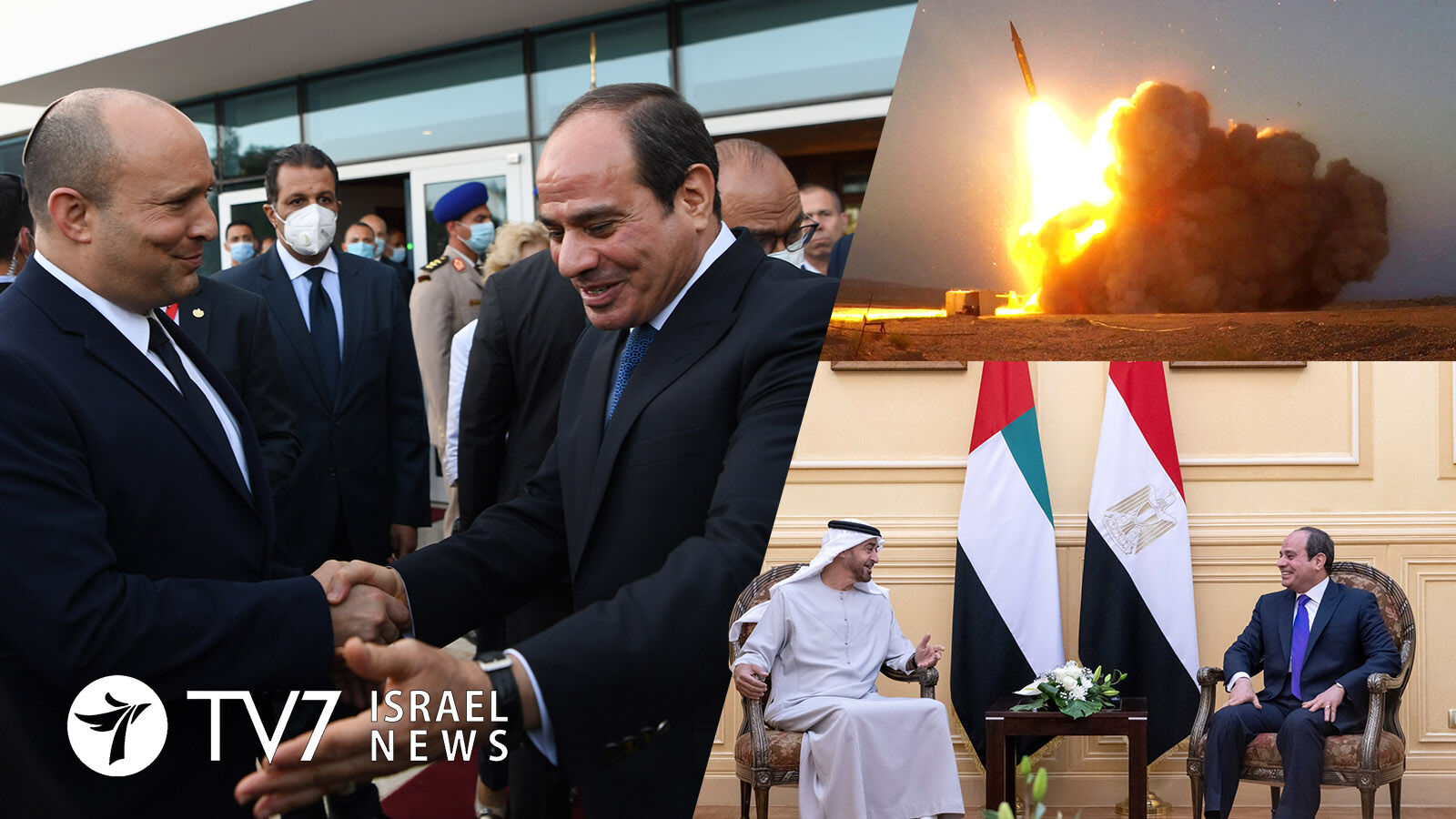Israeli Prime Minister Naftali Bennett travelled to Sharm el-Sheikh for a previously unannounced visit to hold talks with Egyptian President Abdel Fattah al-Sisi and Crown Prince of Abu Dhabi in the United Arab Emirates, Sheikh Mohamed bin Zayed bin Sultan Al Nahyan.
By Erin Viner
The tripartite summit reportedly centered on efforts in Vienna to revive the Joint Comprehensive Plan of Action (JCPOA).
Shared concerns over the Islamic Republic saw the UAE and Bahrain forge ties with Israel in 2020 to create a new regional axis at a time of uncertainty over the commitment of key security ally, the United States.
Arab Gulf states – which are not participating in the Vienna Talks – had heavily criticized the original 2015 nuclear deal for failing to address Tehran’s ballistic missile program or its regional terror proxies in Yemen, Lebanon, Syria, Iraq and elsewhere.
The Israeli Prime Minister’s Office issued a short statement confirming his visit, which began yesterday at Egypt’s Red Sea resort city, for meetings today with President Sisi and the Abu Dhabi Crown Prince.
“Against the backdrop of the recent developments in the world and the region, the leaders discussed the ties between the three countries and ways to strengthen them on all levels,” said the statement, issued earlier today immediately prior to Bennett’s short flight back to Jerusalem.
This was Prime Minister Bennett’s second visit to Egypt since taking office. He previously traveled to Egypt last September to discuss bilateral relations, security and the economy with Sisi, in what was the first official trip by an Israeli head of government to the country in a decade. He also traveled to Abu Dhabi in December, in what was the first official visit by an Israeli leader following the normalization of relations between the two countries.
Last week, the Israeli leader pointed to what he described as mounting cooperation between Jerusalem and Cairo, while underscoring that closer ties would contribute to regional security. The two countries signed a peace treaty in 1979, and recently announced the expansion of aviation ties with a new direct route between Tel Aviv and Sharm el-Sheikh expected to launch next month.
Egyptian sources, speaking on condition of anonymity, said the three leaders also held discussions that covered consequences of the war in Ukraine. The UAE and Saudi Arabia have so far resisted Western calls to increase oil output to curb the spike in crude prices caused by the conflict. Egypt is challenged by fresh economic pressures due to the war that saw a 14% drop in its national currency yesterday. The Arab Republic has requested financial support from wealthy Gulf states in the past.
Sisi later held expanded bilateral talks with the UAE leader, during which he stressed Cairo’s commitment to security in the Gulf and “rejection of any practices that seek to destabilize it,” according to a statement from the Egyptian President’s Office.
